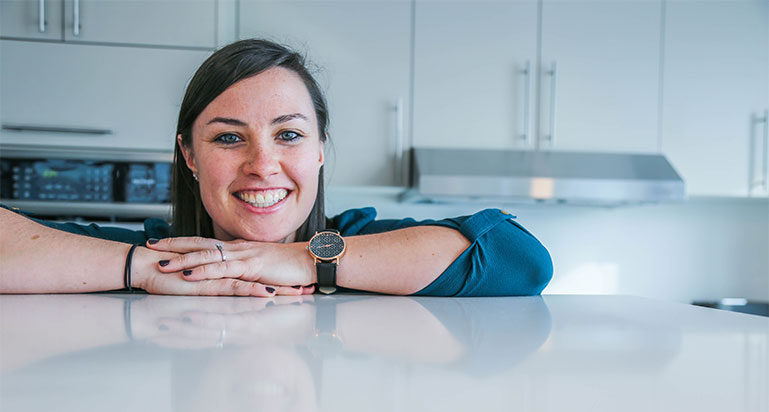
It’s estimated that one in three Canadians has diabetes or prediabetes, and that type 2 diabetes accounts for 90 to 95 per cent of all cases. Type 2 diabetes is more likely to develop in individuals who are overweight or obese, physically inactive, or of certain ethnic origins, and in those who have a family history of diabetes.
Now, UBC Okanagan postdoctoral fellow Dr. Corliss Bean is using her passion for applied research to explore how adults enrolled in UBCO’s Small Steps for Big Changes program are making dietary and exercise changes stick over the long term. The program, which was developed by UBCO Associate Professor Dr. Mary Jung, has so far supported 320 people who were at risk of developing type 2 diabetes in creating long-lasting, positive lifestyle changes.
Working closely with 14 women who participated in the program, over the next three years Dr. Bean endeavours to uncover the key to the project’s success – an example of how UBC encourages staff, Faculty and students to deepen the relevance and public impact of UBC research and education (Strategy 16: Public Relevance).
“We want to understand how adults adopt and maintain healthy lifestyle changes. Throughout my research, the importance of providing people with the tools they need to make their own changes has become so evident. It’s all about prevention.”
Dr. Corliss Bean
Visit UBC Okanagan’s My Stories website to learn more about Dr. Bean’s research and how the successful program will be expanded within the Okanagan region and beyond – thereby helping even more people adopt a healthier lifestyle and lower their risk of developing type 2 diabetes.